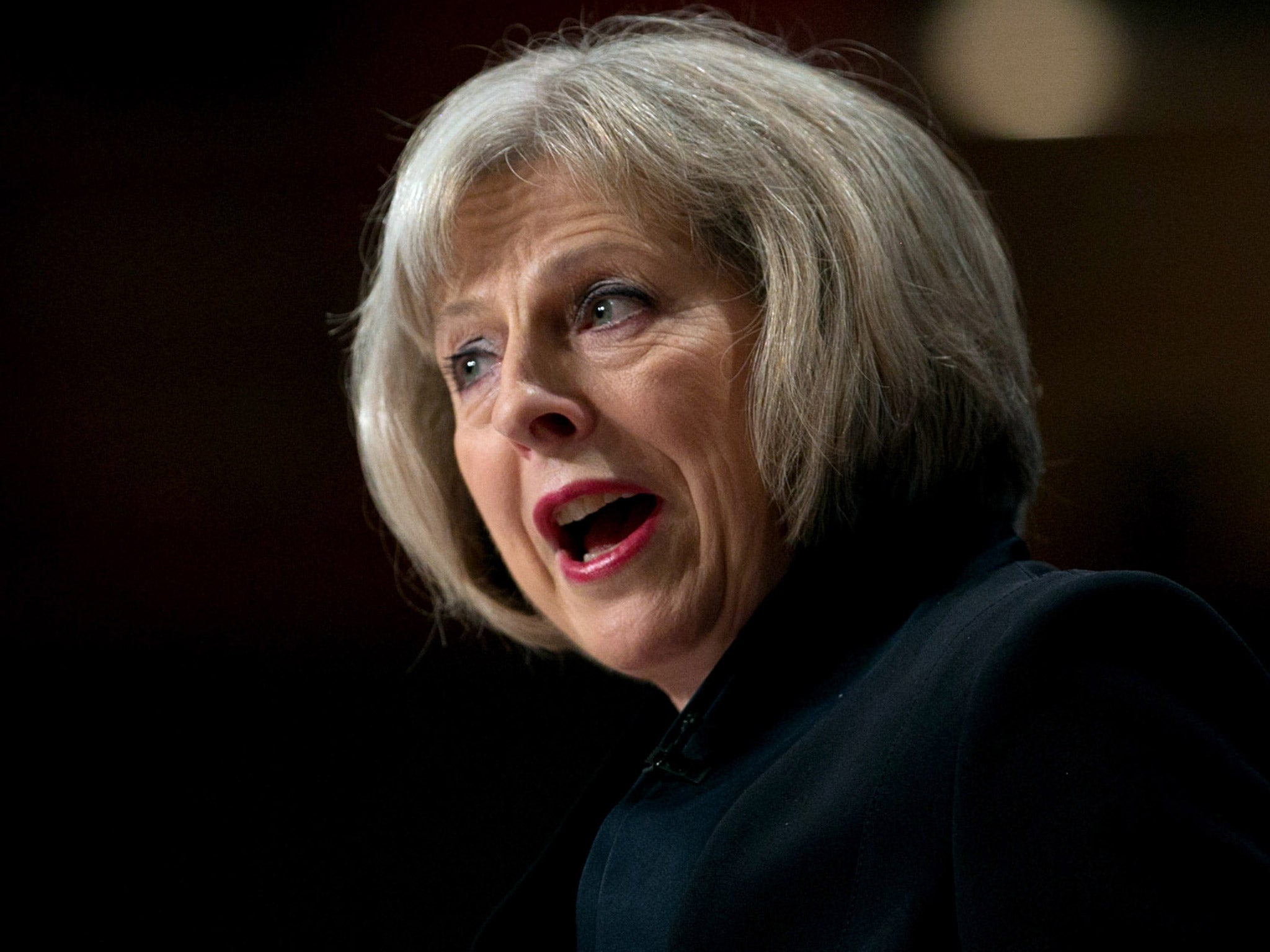Theresa May's threat to broadcast freedom is staggering
Leaked letter shows that the Home Secretary was planning TV censorship

The hypocrisy is breath-taking. In January, David Cameron was one of the world leaders who marched through Paris in protest at the slaughter of eight journalists at the satirical magazine Charlie Hebdo. Some of the other participants had a questionable record on human rights but the sentiment – that free expression was under attack and must be supported – was widely applauded.
Just two months later, it turns out, a leading member of Cameron’s government was proposing new powers to enable the communications regulator, Ofcom, to censor “extremist content” on TV and radio before broadcast. This staggering revelation is contained in a leaked letter from the then Culture Secretary, Sajid Javid, who found Theresa May’s proposal hard to stomach.
Javid was clear in his letter to the Prime Minister that this would mean changing Ofcom’s status from post-transmission regulator to censor. He pointed out that other countries with a pre-transmission regulatory regime “are not known for their compliance with rights relating to freedom of expression”.
It is ironic, in the circumstances, that it was Ofcom that stood up for broadcasters in the row over Channel 4’s controversial documentary Undercover Mosque, in 2007. In the film, extremist clerics were shown advocating the murder of apostates, British soldiers, gay men and Jews.
West Midlands Police responded, bizarrely, by investigating the film-makers for broadcasting material “likely to stir up racial hatred”. When they were advised there was insufficient evidence to prosecute, they complained to Ofcom. The regulator sent them off with a flea in their ear, but the episode demonstrates the risks run by journalists intent on exposing extremism.
There has been speculation that May’s proposal to introduce an element of “prior restraint” goes back to the murder of Fusilier Lee Rigby two years ago, when she questioned the BBC’s decision to broadcast a recorded interview with the Islamic extremist Anjem Choudary. It seemed a perverse reaction, even at a time when feelings were running high, given that Choudary hardly did himself any favours on Newsnight. Anyone who wants to know what Choudary thinks can follow him on Twitter, where he is “justifying” the destruction of archaeological sites in Syria and Iraq.
More significant, perhaps, was another Newsnight interview, this time with a friend of one of Fusilier Rigby’s killers who claimed that Michael Adebolajo had been tortured in Kenya and harassed by MI5. The friend was arrested by counter-terrorism officers as soon as he finished the interview.
It is hard to avoid contrasting May’s plan to censor TV shows with her government’s unenthusiastic (to say the least) approach to the Leveson report. Lord Justice Leveson didn’t recommend any form of prior restraint; he just thought, reasonably enough, that an independent body should cast an eye over any regulator set up and run by the press.
That’s been widely misrepresented in some quarters as an unprecedented threat to press freedom. Now that the Prime Minister appears to back May’s proposal to censor broadcasters we can see what a threat to freedom of expression really looks like.
Twitter: @polblonde

Join our commenting forum
Join thought-provoking conversations, follow other Independent readers and see their replies